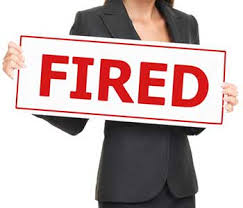Will I get fired if I sue my employer?

We get calls all the time from people who are complaining about an issue with a job where they still work. Overwhelmingly, the question we get asked more than anything else is “Will they fire me if I pursue this case?” Most people work because they need the money, and many cannot afford to be without a job for the amount of time it may take to find a new one, so this question is completely reasonable. The answer? We don’t know.
Firing someone for engaging in protected activity is called “retaliation,” and it is illegal. For most types of claims, this applies to both internal complaint and external complaints or lawsuits. For example, if you are being sexually harassed, you can make an internal complaint to your company’s human resources department or to your supervisor, and that would be protected. You could file a charge with the federal Equal Employment Opportunity Commission or Michigan’s Department of Civil Rights, and that would be protected. You could file a lawsuit against your company for sexual harassment, and that would be protected too. That means that for any of those things, it would be illegal for your employer to fire you because you took that action.
Whether or not taking a certain action is “protected” depends on the exact nature of your complaint. Some types of complaints, such as sexual harassment and most illegal forms of discrimination, are almost always protected by law. Other types of complaints, such as safety violations, are only protected some of the time. With safety complaints, for example, it is illegal to firing someone for filing a charge with a government agency, such as MIOSHA, but not for making an internal complaint without any mention of reporting to a governmental body.
Whether your complaint is “protected” also depends, in some cases, on the strength of the underlying complaint. You usually do not have to win on your underlying complaint, but the complaint does need to be made in good faith. For example, assume you making a complaint of sexual harassment and then get fired for doing so. You could end up losing the sexual harassment part of your case if the harassment you complained about isn’t enough to rise to the level of being illegal, but still win the retaliation part of your case for being fired if you had a reasonable basis for making the complaint. Alternatively, if the “harassment” you are complaining about is so minimal that a reasonable person would not find it offensive, or if you are complaining about something that would not be illegal at all even if true (such as bullying that is not based on a protected status), your complaint is not considered “protected activity” and you would not prevail in a retaliation claim.
If you would like to make a complaint of some kind against your employer and want to know whether that complaint would be protected, or if you have been fired for making a complaint, call Gold Star Law for more information.


